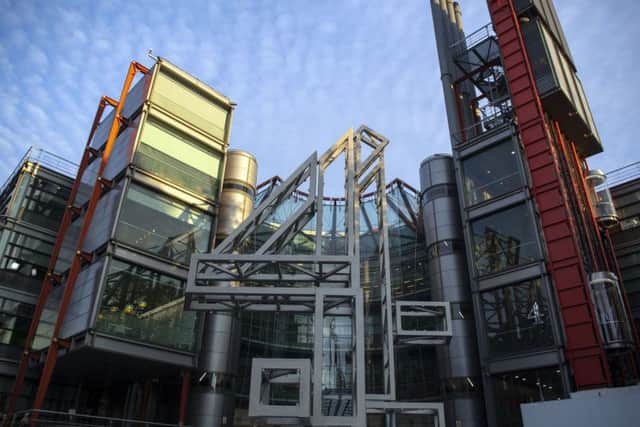Andrew Carter: Channel 4 should be just the start of Leeds success story
Certainly the other two had strong cases – West Midlands had been bullish about its chances of winning the race, while being home to many BBC and ITV jobs placed Greater Manchester as the front-runner.
But despite all this, the final decision is testament to the strength of Leeds against the criteria set out by the Department of Digital, Culture, Media and Sport – and Channel 4 – during the bidding process.
Advertisement
Hide AdAdvertisement
Hide Ad

It offers things that only a large, successful city can offer – a large and diverse population, a talented workforce and strong digital infrastructure. And, by succeeding, Leeds reaffirms itself as an economic force for the UK.
Winning the bid is certainly something to be celebrated – Channel 4 is a high profile institution known well beyond these shores. Its decision to move to Leeds brings a lot of kudos to the city.
What we have learned from the BBC’s move to Manchester though is that the sparkle and brand recognition of a media company like the BBC is much greater than the economic impact it has locally.
Advertisement
Hide AdAdvertisement
Hide AdThere’s no doubting that the BBC’s move to Salford has been a good thing for the area, but the jobs it has created has been much lower than forecast. And that’s with the BBC moving 2,000 jobs up to Manchester. Channel 4 is moving 200.


The ongoing challenge for Leeds is to continue to be a great city to do business, the type of place that a Channel 4 or a Sky or a Lloyds Banking Group have shown that they want to locate in. A place that offers businesses the workers and infrastructure they are looking for when they are choosing from a list of potential places to set up shop.
This success isn’t guaranteed. Like London and Manchester, Leeds had a tough time in the decades after the war, losing more jobs than it created as technological change and globalisation put pressure on its key industries. As a result of the decline of its manufacturing base in particular, this meant that the city had 17,000 fewer jobs in 1991 than it did four decades earlier.
But it has bounced back. And it has done this by reinventing its economy, rather than harking back to a golden age.
Advertisement
Hide AdAdvertisement
Hide AdThe constant challenge for cities like Leeds, and Manchester and Birmingham, is to replace jobs in declining industries with jobs in new, growing sectors.
Leeds has done this by attracting in and retaining the likes of Sky, Lloyds and others of its ilk. And this has meant that not only does it have over 100,000 more jobs today than it did in 1991, but many of these jobs are higher-skilled and better paid, creating opportunities not only for the residents of Leeds but for the people in the wider West Yorkshire area too. This week’s announcement by Channel 4 is the latest piece in this never complete jigsaw.
The lessons from the 1970s and 80s remind us that fitting future pieces into the puzzle is by no means straightforward. While Leeds secured a significant victory on Wednesday, the challenge doesn’t end.
It needs to continue to win the perpetual race to secure business investment in the face of not just competition from cities in this country, but from places like Frankfurt, Milan and Lyon too.
Advertisement
Hide AdAdvertisement
Hide AdAnd it needs to continue to respond to the development of new technologies and automation, which will put pressure on the jobs that bring prosperity today.
Automation and globalisation have had a significant impact on the city’s manufacturing base in the past. And it will no doubt reshape industries such as TV and finance in the future.
That means making sure that as many residents of Leeds and nearby towns as possible have the skills they need to access to the kinds of job opportunities that Leeds is creating.
And it means continuing to strengthen the benefits that Leeds offers businesses from many different sectors – namely access to highly-skilled workers, good office space, affordable homes, and reliable transport links.
Advertisement
Hide AdAdvertisement
Hide AdChannel 4 is a solid anchor, and could play a role in the growth of a number of new and established firms, but it isn’t everything.
The real prize won by Leeds this week was the acknowledgement of the success and dynamism of the people and industry that it already has, without which Channel 4 wouldn’t have given them a second look.
It is this that they should celebrate, irrespective of the future of Channel 4, or even the television industry as a whole.
Andrew Carter is chief executive of Centre for Cities.